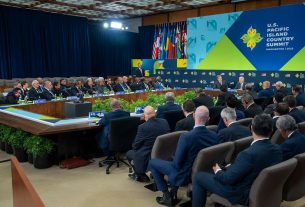In this new series, The Applied Ecologist is amplifying the staff and student voices from the University of Surrey’s Centre for Environment and Sustainability to showcase their diverse, interdisciplinary body of work and to help inspire the next generation.
In this post, we share below this year’s BSc student’s experiences of their fieldtrip to South Wales, UK.
Meet: Ananya, Amy, Abigail and Anna
Ananya, Amy, Abigail and Anna are current BSc students on the Centre’s new BSc in Environment and Sustainability programme.
“We aspire to work in industries that encompass environmental management, green finance, and corporate sustainability. Our objective is to cultivate meaningful change within these industries by providing sustainable solutions“.
What have you been working on?
Whilst on our recent fieldtrip to South Wales, we visited the Pentref Tyleri community-led eco-tourism project, where we conducted two primary field methods: horizon scanning and PESTLE (Political, Economic, Sociological, Technological, Legal and Environmental) analysis. These methods were applied through a workshop activity on-site in Caffi Tyleri.
We participated in a workshop focused on horizon scanning, employing an adapted ‘scenario in casting’ approach. Horizon scanning is a strategic, future-orientated framework, designed to examine potential future scenarios. This method aids policymakers and stakeholders in decision-making, mitigating future uncertainties. The horizon scanning workshop incorporated PESTLE analysis. PESTLE analysis is a management framework that uses external factors to see their wider impacts on an organisation, guiding their decision making. Prior to the workshop, we received a tour of the grounds of the Pentref Tyleri project and the surrounding area. Additionally, several talks were delivered by key stakeholders and community members involved in the project. This allowed us to gather information from key stakeholders and community members, offering a view of the project’s potential successes and challenges. During the workshop, using the two field methods stated above, we created a mindmap: Project Aims map to explore the central question of “What does the future look like in 2050, providing the achievement of the Sustainable Development Goals (SDGs)?”.
Why is this project important?
What we learnt from our workshop was that the locals realised that making the community self-sustaining would be vital once they were no longer receiving EU funding. Subsequently, a group of locals came together to try and improve the lives of people in Cwmtillery. They agreed that the village, lake, woodland and uplands were important assets to utilise. From this came the idea of generating income through sustainable activities and in turn, return this money to the community, creating a self-sustaining community.
Since then, many projects have already begun:
- The creation of a community garden
- Community baking sessions
- Heritage baking in a Victorian style community oven
- Free Soup Fridays
- Apple pressing sessions
- Community compost to encourage home growing
- Wetland establishment
The Pentref Tyleri community-led ecotourism project is a great example of regeneration. They are utilising community assets including the different skills of locals, as well as the natural environment. Everything done within Cwmtillery goes back into Cwmtillery, creating a better quality of life for all.
What are the future implications of your field project?
Community-led eco-tourism projects are becoming increasingly popular. It is widely agreed that community-led projects need management practises and policies to encourage a sustainable attitude towards future eco-tourism. This is shown in sustainable projects such as the city of Hoi An where due to gaps in existing policy, there is a need for new policies to guide effective eco-tourism.
A holistic approach is required. This project involves multiple stakeholders who each have their own priorities, however, everyone’s needs are interconnected.
Eco-tourism projects should involve local communities as key stakeholders. They should prioritise the employment and opinion of locals with the aim to minimise conflicts and potential ramifications. The groundworks for successful ecotourism have already been laid in Cwmtillery. With the consideration of regeneration techniques used in places such as Hoi An we believe that their community eco-tourism projects could thrive. Continued development of current projects such as Caffi Tyleri and the regenerated wetlands site should provide value to help fund the development of future eco-tourism projects in Cwmtillery. Ultimately creating a self-sustaining community.
For more information
Visit the website for more information about the new BSc programme in environment and sustainability.
Discover more posts from the Centre for Environment and Sustainability blog series.




